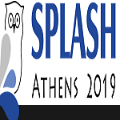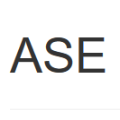Double-blind review relies on the authors' ability and willingness to effectively anonymize their submissions. We explore anonymization effectiveness at ASE 2016, OOPSLA 2016, and PLDI 2016 by asking reviewers if they can guess author identities. We find that 74%-90% of reviews contain no correct guess and that reviewers who self-identify as experts on a paper's topic are more likely to attempt to guess, but no more likely to guess correctly. We present our findings, summarize the PC chairs' comments about administering double-blind review, discuss the advantages and disadvantages of revealing author identities part of the way through the process, and conclude by advocating for the continued use of double-blind review.
翻译:双盲审查取决于作者有效匿名的能力和意愿。 我们在2016年ASE、2016年OSOPSLA、2016年OPSLA和2016年PLDI上通过询问审查者能否猜出作者身份来探讨匿名效力。 我们发现,74%-90%的审查没有正确的猜测,而自称是论文专题专家的审核者更可能试图猜测,但更不可能正确猜测。 我们介绍了我们的调查结果,总结了PC主席关于实施双盲审查的评论,讨论了披露作者身份的利弊,并最后主张继续使用双盲审查。





